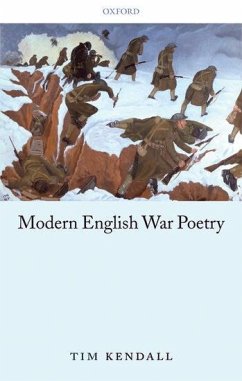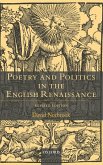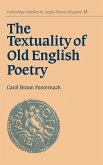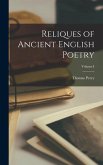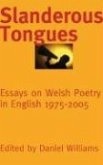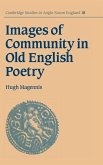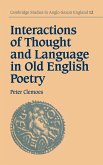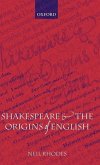Tim Kendall's study offers the fullest account to date of a tradition of modern English war poetry. Stretching from the Boer War to the present day, it focuses on many of the twentieth-century's finest poets - combatants and non-combatants alike - and considers how they address the ethical challenges of making art out of violence. Poetry, we are often told, makes nothing happen. But war makes poetry happen: the war poet cannot regret, and must exalt at, even the most
appalling experiences. Modern English War Poetry not only assesses the problematic relationship between war and its poets, it also encourages an urgent reconsideration of the modern poetry canon and the (too often marginalised) position of war poetry within it. The aesthetic and ethical values on
which canonical judgements have been based are carefully scrutinized via a detailed analysis of individual poets. The poets discussed include Thomas Hardy, Rudyard Kipling, Wilfred Owen, Charlotte Mew, Edward Thomas, Ivor Gurney, W. H. Auden, Keith Douglas, Ted Hughes, and Geoffrey Hill.
Hinweis: Dieser Artikel kann nur an eine deutsche Lieferadresse ausgeliefert werden.
appalling experiences. Modern English War Poetry not only assesses the problematic relationship between war and its poets, it also encourages an urgent reconsideration of the modern poetry canon and the (too often marginalised) position of war poetry within it. The aesthetic and ethical values on
which canonical judgements have been based are carefully scrutinized via a detailed analysis of individual poets. The poets discussed include Thomas Hardy, Rudyard Kipling, Wilfred Owen, Charlotte Mew, Edward Thomas, Ivor Gurney, W. H. Auden, Keith Douglas, Ted Hughes, and Geoffrey Hill.
Hinweis: Dieser Artikel kann nur an eine deutsche Lieferadresse ausgeliefert werden.

